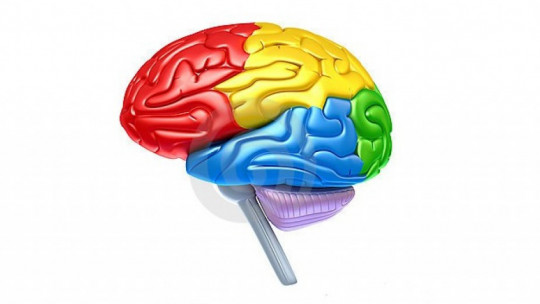Do you know what we’re talking about when we say something is placebo? Do you believe in the power of suggestion? Discover this effect and how it can be related to psychology and psychotherapy.

Surely you have ever heard the word placebo, but do you know what it really is? It is the application of a neutral substance, that is, one that does not have healing properties, but that produces beneficial effects on the person. The substance itself does not help the person feel better, the improvement occurs after the suggestion, that is, it is believed that it will help and it does. This event is called the placebo effect.
What is the placebo effect? Definition
He placebo effect and its definition They refer to the phenomenon in which some people experience a real benefit after the administration of a substance or treatment that is completely inactive. Therefore, the substance, called placebo or placebo medications, does not have any type of known medical effect. In this way, these substances can take the form of placebo pills, as an injection (of saline solution) or as a consumable liquid.
In the majority of cases where the Placebo effect The person receiving this treatment does not know that they are actually being given a placebo medicine. That is, they believe that they are being medicated with the real treatment. In many cases, placebo pills or these placebo medications are designed in the same way as the substance that is used as real medicine, but without the substance that causes the cure.
You will see it better with a example: Imagine that it is 3pm, critical time, and you start to experience drowsiness. You decide to have a coffee and a few minutes after drinking it you feel much clearer and more active. When you go back to the kitchen you realize that you have had decaffeinated coffee. How can decaffeinated coffee have the same effect as caffeinated coffee? Well, this is the placebo effect
In psychology there are multiple studies that talk about the placebo effect They are carried out continuously to check which pharmacological treatments are most effective. The basis of these experiments is the following: a population is collected and randomly divided into two groups, the experimental group and the control group. If, for example, a population of depressed patients is selected, the experiment focuses on administering antidepressant drugs to the experimental group, and a pill with sugar to the control group or placebo group (evidently without their knowledge). There are multiple studies that show that many individuals in the control group improve after taking the placebo, simply because they believe that this medication will help them get better, they have that expectation.

How does the placebo effect work?
Although there is still not enough evidence of the suggestion and meaning that the placebo effect entails, the reality is that there are some theories that come close to a fairly truthful explanation. Among the most accepted in the scientific community, there are the following.
- Self-limiting disorders: There are many conditions, such as the common cold, that are self-limiting. This means that instead of healing with the mind through a placebo in many cases they will resolve on their own despite not receiving effective treatment.
- Remission: Symptoms of some diseases can come and go over time. During remission, that is, the period of time where these symptoms disappear, the Placebo effect can coincide with these effects and make people believe that placebo pills may be the solution to their physical problem.
- Behavior change: The placebo effect can increase the motivation for a person to start taking better care of themselves and have a more positive attitude towards an illness or pathology. Therefore, the suggestion and its meaning It translates into an improvement in the symptoms of a physical condition due to the improvement in a person’s healthy habits.
- Altered perception: The interpretation of the person when receiving a medication (who does not know what they are) placebo pills ) can change your expectations regarding your illness and make you feel better. A good example is that in the presence of acute pain the person may perceive it as a tingling due to the placebo, its effect and the meaning that the medication has for the treated individual.
- Brain chemicals: Upon receiving the placebo medications The person can trigger the release of the body’s own natural painkillers, such as endorphins, which help to experience a greater sense of well-being, which explains the suggestion and the definition of many of the benefits of the placebo effect.
- Altered state of the brain: Research tells us that the brain can respond to an imagined scene in the same way it responds to a real experience. In this way, the Placebo effect It can be synonymous with conditioning these altered states that allow us to improve certain symptoms of physical illnesses.
- Beliefs: Believe heal with the mind or that the placebo effect can cure a person, it can make the person remit some physical conditions. But despite this, the diseases and side effects of these will not be cured in reality.
He Placebo effect It is synonymous with conditioning our attitude through mental deception. Although its psychology and its meaning mean that our attitude and thoughts can affect our health, the reality is that believing that someone can heal with their mind is also harmful. Personal work, the help of a psychologist and conventional medicine are crucial to trying to combat a disease.

What makes the placebo effect work?
According to studies around Placebo effect there are a series of characteristics that allow the placebo as a medicine to help the people who receive it.
- Similarity to a medicine: The more realistic the placebo pills, the person will believe more in its effects. Furthermore, the larger the placebo pill from the pharmacy is, the individuals will become even more suggestive due to its size (the larger it is related to a greater effect). For its part, most research has shown that injections tend to have more expectations and a more effective meaning for the remission of a disease through the placebo effect.
- Person’s attitude: When the person really believes that the treatment they are taking really works, the chances of the placebo effect have benefits are greater. So much so that even the placebo effect can work with those people who are skeptical about it. This is due to the power of suggestion and its meaning.
- Doctor-pacient relationship: When people trust their doctors, they are much more likely to the placebo as medication it has many more effects than if it does not exist.
Benefits of the placebo effect in psychology
He Placebo effect It has more effects on mental illnesses than physical ones. Despite this, it is vital to consult with a psychologist if you suffer from any condition that does not allow our mental well-being. Mainly, placebos can help with the following.
- Depression: Different studies have shown that the placebo effect affects people with major depressive disorder. During the study, a placebo group was told that they were receiving an injection to improve their mood. According to this research, people improved their depressive symptoms due to the placebo effect.
- Pain management: Another benefit demonstrated through of placebo as medicine It is the help that it offers as pain management.
What are placebo medications like?
A placebo It is made in the same way as a real drug, but instead of being made up of active chemicals, starch or sugar is used. Therefore, chemicals do not contain substances that can have a physical effect on our body. According to research, the placebo effect seems to occur for two reasons:
- Ups and downs: Diseases and symptoms related to them usually present different ups and downs. That is, it may coincide that when taking the placebo People feel fewer symptoms due to this up and down characteristic of diseases.
- Positive opinion: People who respond favorably to the placebos They tend to have a more positive opinion about them. Therefore, placebos are more likely to affect those people who believe in them.
Placebo effect versus nocebo effect
In the same way that we can trust that therapy will go well, we can distrust it. Whether because you think that psychology is not an effective science or because of the feeling that the therapist or the center gives you, the nocebo effect can occur, that is, if you believe that the therapist will not be able to help you, The therapy is probably going badly for you. You will not be open to change nor will you generate a therapeutic bond and therefore, the therapy will surely be a failure. I have met several times in therapy people who have gone through more than 4 or 5 psychology professionals and they have always done poorly. This result is part of the nocebo effect
Pygmalion Effect
Furthermore, along with Placebo effect We find the Pygmalion effect, or more commonly called, self-fulfilling prophecy. This is a behavioral change that occurs as a result of trusting in therapy. If you trust in therapy, you will do things and behave in a way that is beneficial to you, which will lead to what you are waiting for. For example, if you are depressed and start psychotherapy, perhaps you will join the gym, meet new people and that will lead you to feel better about yourself, simply because you feel like making changes and that leads to a reduction in depression.
Hawthorne effect
Furthermore, the Placebo effect It often goes hand in hand with the Hawthorne effect, which is nothing more than positive evolution simply by being observed and evaluated. The unconscious pressure exerted by the reference figure, the psychologist, makes the person more committed to the change and therefore, does more things beneficial to him/her than if the changes were not to be reviewed.
Psychotherapy does not work only thanks to to the placebo effect This only produces temporary and shallow symptom relief. Significant changes occur thanks to treatment that is truly effective.









